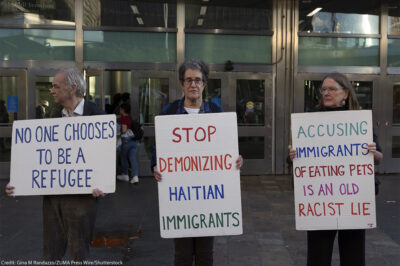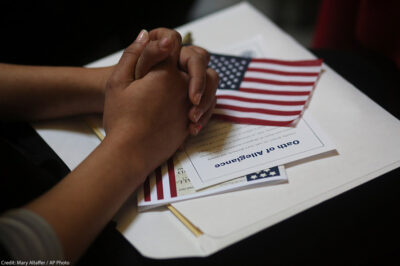Report Collects Government Spying Cases from 10 Countries
“Surveillance and Democracy” Shows Effects of Uncontrolled Spying Around the World
NEW YORK — A report released today aims to demonstrate the global negative consequences of unrestrained government surveillance, including crushing dissent, intimidating activists, and undermining the dignity of ordinary citizens.
The report, “Surveillance and Democracy: Chilling Tales from Around the World,” is from the International Network of Civil Liberties Organizations (INCLO). It includes comparative evaluations, recommendations, and case studies from 10 countries in the Americas, Africa, Asia, Europe, and the Middle East:
United States — A Marine Corps veteran tries to board a plane and learns he is on the secret no-fly list, apparently based on innocuous private email communications.
Israel — State security agents summon peaceful political activists for “warning conversations” that make clear their lives and communications are being monitored.
Russia — A respected human rights advocate learns after repeated detentions that he is listed in the “human rights activists” section of the national surveillance database.
Canada — A conscientious judge discovers that his country’s intelligence services have been circumventing the law and the courts to spy on Canadian citizens.
Argentina — The investigation of the country’s worst terrorist attack included illegal surveillance and intelligence activities to cover up the truth, leaving the attack unsolved to this day.
India — A journalist on the brink of exposing government surveillance of opposition politicians becomes the target of surveillance himself.
Hungary — The residents of a multi-ethnic neighborhood in Budapest find themselves living under the gaze of cameras that can recognize their faces.
Ireland — The office of the independent ombudsman charged with overseeing the country’s national police suspects it has become the target of national police surveillance.
Kenya — A radical imam is gunned down on the street, and investigations point to state-sanctioned death squads operating on the basis of information gathered through transnational intelligence sharing.
South Africa — The head of an internationally-renowned environmental organization is the subject of a request for “specific security assessments” from a foreign government, and the nation’s largest human rights law clinic learns that it has been subject to unlawful surveillance by the U.K.’s spy agency, GCHQ.
“Almost by definition, clandestine intelligence gathering strains democratic structures and stretches fundamental commitments to due process, transparency and, citizen oversight,” the report’s introduction says. “But there is something new in the scope and intrusiveness of the surveillance, which is the product of breathtaking technological advances that have opened entirely new windows into citizens’ activities and private lives. This exponential expansion of digital electronic surveillance powers has brought widespread anxiety that intelligence gathering may be harming democracy itself, weakening democratic processes and institutions in countries where they are often taken for granted, and impeding or undermining the development of democratic structures in countries that have only recently emerged from more authoritarian systems and abusive surveillance regimes.”
The report was officially released at an international conference in Johannesburg, South Africa hosted by INCLO and its member organizations. The conference brings together leading lawyers, privacy activists, and policy experts from around the world to explore the impact of surveillance on fundamental rights, such as the rights to dignity, privacy, and freedom of expression.
The conference included a discussion between NSA whistleblower Edward Snowden and South African anti-apartheid activist Kumi Naidoo, whose case is described in the report.
INCLO is comprised of independent, national human rights organizations working to promote fundamental rights and freedoms. The member organizations that endorsed the report are the American Civil Liberties Union, the Association for Civil Rights in Israel, the International Human Rights Group Agora in Russia, the Canadian Civil Liberties Association, the Centro de Estudios Legales y Sociales in Argentina, the Egyptian Initiative for Personal Rights, the Hungarian Civil Liberties Union, the Human Rights Law Network in India, the Irish Council for Civil Liberties, the Kenya Human Rights Commission, and the Legal Resources Centre in South Africa.
The report is available here:
http://www.inclo.net/pdf/surveillance-and-democracy.pdf




